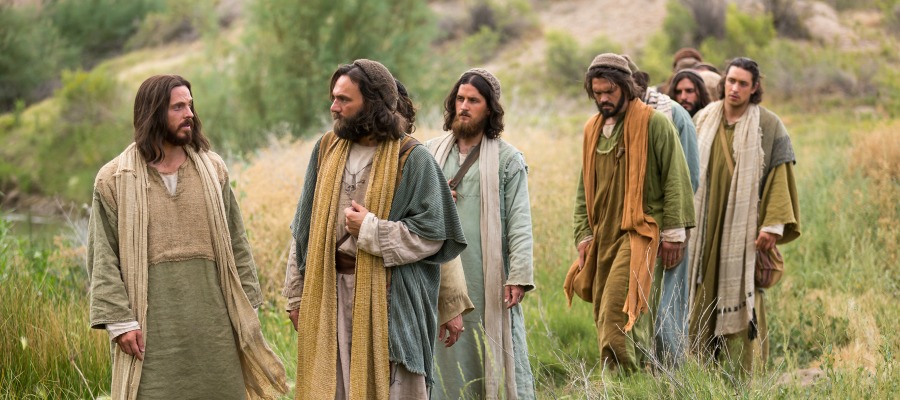God Doesn’t Care How Smart You Are
I had a humbling experience recently. It was a bit of a divine smack in the face, but a necessary one. I learned that God really doesn’t care about how smart I am. The thought hit during a joint Family Home Evening my wife and I recently attended, but I’m getting ahead of myself.
To give you some context, I write stuff for a living. And I’ve been blessed enough to be able to make the gospel my subject, every day. Living the dream, right? I spend my time studying doctrine and poring over the words of the prophets both ancient and modern.
On the flip-side of the coin, it also means I’m regularly exposed to a lot of anti-Latter-day Saint (for lack of a better term) arguments. Some questions are presented very respectfully and sincerely, while some are laced with prickly malice. But knowing why some people struggle with the Church has compelled me to seek answers to those questions. It’s a journey that has led me deeper through the scriptures and annals of Church history than I ever would have traveled had it not been my job.
As a result of my full-time study, I’ve learned a ton. I can tell you why many Latter-day Saint temples have pentagrams etched in their granite walls. I can tell you about the hidden cave of Native American treasure Brigham Young may have utilized to help fund construction of the Salt Lake temple. I can expound on the difference between revelation and inspiration. I can, I can, I can, I know, I know, I know …
God doesn’t care about how smart you are
I hadn’t been especially looking forward to the FHE. I didn’t know the other couple of families in attendance, and I frankly didn’t care to. It was nothing personal, I’m just generally anti-social. But my wife convinced me to tag along. Cynically, my initial thought was that the evening would be a waste of time. I’d convinced myself that I’d gain nothing from the experience.
A similar attitude had begun to seep into other aspects of my life as well. Church attendance started to become an obligation rather than a privilege. After all, what could this volunteer Sunday School instructor teach me? Do I really have time for such inconveniences? Well, yes, but I was prepared to complain the whole time.
All of these feelings whirred within me as the FHE began. After several minutes of silent pessimism the thought came to me:
Knowing all this stuff about the gospel means nothing if you’re not able to live the gospel.
It’s one thing to know that Jesus teaches the beatitudes in Matthew chapter five. It’s another thing to actually mourn with those that mourn, or to hunger after righteousness, or to reconcile yourself with your brother. You might know a lot, but if you don’t become meek, merciful, pure in heart, a peacemaker, then what does it matter?
And that’s the truth. Nowhere in the scriptures does it say,
Thus saith the Lord, if thou canst not answer this 10,000 question multiple-choice quiz, thou art not smart enough to enter the kingdom of Heaven.”
Ironically, the scriptures do say this:
O that cunning plan of the evil one! O the vainness, and the frailties, and the foolishness of men! When they are learned they think they are wise, and they hearken not unto the counsel of God, for they set it aside, supposing they know of themselves, wherefore, their wisdom is foolishness and it profiteth them not. And they shall perish.
Now don’t get me wrong—there’s nothing wrong with knowledge and learning. It’s also the scriptures that encourage us to “seek learning, even by study and also by faith,” and that “to be learned is good if [we] hearken unto the counsels of God.” The Holy Ghost is a teacher, but knowledge (even spiritual knowledge) is a tool, not a destination. What determines our path is how we use the tool of knowledge. That’s what God really cares about. Even Satan knows about Christ. It’s what he does with that knowledge that singles him out as the Great Deceiver. And I had started down a similar path. One full of condescension, aloofness, and arrogance.
The path I should have chosen, and am striving to stick to now, is a much more intensive one:
The path of becoming
The gospel is about becoming, not accumulating knowledge. The tool of knowledge is feckless if it’s not used to help us become something better than we are.
Not every one that saith unto me, Lord, Lord, shall enter into the kingdom of heaven; but he that doeth the will of my Father which is in heaven …
Therefore whosoever heareth these sayings of mine, and doeth them, I will liken him unto a wise man, which built his house upon a rock …
The whole purpose of Christ’s gospel is to transform us into beings more similar to Him. We’re supposed to be the kind of people that don’t ignore the needs of people around us. People that can turn the other cheek when persecution rears its head. People that are kind.
Back in an ’82 General Conference address, Mark E. Peterson said,
The meaning of complete salvation is that we become like the Savior in word and thought and deed. We can measure our progress toward salvation merely by determining how Christlike we are. If we are not becoming more like Him in our everyday living, we are not advancing toward salvation as we should.
Being “smart” is not a requirement for salvation. Becoming more like our Savior Jesus Christ is. It’s something we’re supposed to be focused on at all times and in all places, even at Family Home Evening.
We have classes and we have tests
There are periods of instruction that happen in our daily lives. You’ve had them before. Maybe it came while singing a hymn or studying the scriptures or maybe it even came through a dream. The Spirit rested upon you and you received impressions and inspiration. Those are instructive moments.
But there are also moments of testing. Maybe “what can I get out of this Sunday School lesson” just isn’t the point. Perhaps it’s more of a test than a class. The better question might be, “how can I be more like Christ during this time?”
Suddenly the pressure is taken off of the instructor and we each become much more responsible for our Sunday experiences. Spiritual tests are not tests of knowledge, but rather your character. In that sense, it’s a test that extends well beyond the information presented during the lesson. For example,
With what attitude do you approach Sunday School?
How do you feel about that guy raising his hand to give his two cents every ten seconds?
There’s someone quietly weeping in the corner of the room, what are you going to do?
Spiritual classes and tests (which oftentimes overlap) are happening all the time. Tests might be happening when you go to work every day, when your kids don’t want to go to bed at night, and yes, even at Family Home Evening.
It doesn’t matter how smart you are…
My FHE experience improved dramatically after that. I tried to be friendly, I tried to get to know people, I tried to love people more. I stopped thinking about myself so much.
Peter was a fisherman. Joseph Smith was a farmer. Jesus Christ was a carpenter. God doesn’t care how smart you are. What matters is that we strive to live up to Christ’s words in 3 Nephi 27:
What manner of men ought ye to be? Verily I say unto you, even as I am.
And who knows, you might just learn something along the way.






